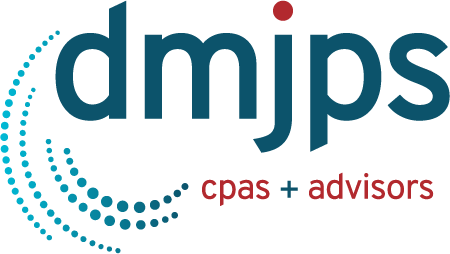How will President Biden’s plans for our country change your company’s strategy for taxes? With big plans for making changes to our country’s infrastructure, as well as modernizing and improving our transportation system, these changes will have a big impact on new jobs in our country and how we invest in new infrastructure. Planned tax code changes, which include raising corporate taxes, are expected to impact both individuals and corporations. Here’s an overview of the planned changes to help you prepare.
Biden’s Tax Plan: Infrastructure Growth Through Increased Spending and Raising Corporate Taxes
The infrastructure spending package increases federal spending by raising corporate taxes. The first part of the plan affecting the corporate tax codes improves existing infrastructure, such as bridges, railways, ports, and water transportation systems. It will also expand clean energy investments, including research and development; make significant investments in caregivers for children, the disabled, and the elderly; invest in educational institutions; and create a nationwide infrastructure to support electric vehicle use.
Anticipated Upcoming Spending
As this spending package rolls forward with a focus on raising corporate taxes, the administration is releasing more details on what the expected changes to the corporate tax codes that will support this growth would look like. Though the second part of the plan won’t be released until next month, it’s expected that we’ll see expansions of the Affordable Care Act and available healthcare, creation of new healthcare initiatives, an extension of a larger child benefit than has already been improved and provisions for paid family and medical leave options beyond the current federal regulations for unpaid leave.
The proposal is expected to make several major investments with specific dollar amounts directed for particular projects, all made possible by raising corporate taxes. These include:
- $400 billion to improve care for elderly and disabled Americans
- $300 billion to expand broadband internet, improve drinking water infrastructure, and upgrade power grids, including delivery of affordable universal broadband and replacing all lead piping in drinking water systems
- $580 billion into American job training, manufacturing, research, and development
- $621 billion for improving transportation infrastructure including bridges, railways, ports, public transit, roads, and airports. This includes a national network of half a million electric vehicle chargers by 2030, repairing 10,000 bridges, repairing 20,000 miles of roads, and replacing 50,000 diesel public transit vehicles.
- $300 billion to build, upgrade and retrofit affordable housing and schools, including half a million homes for low- and middle-income Americans
Anticipated Updates to Corporate Tax Codes
The bill totals nearly $2 trillion over eight years, to be paid for by changes to the corporate tax rate, which will end up raising corporate taxes. If funding were pulled from domestic businesses offshoring profits to avoid taxes, the plan would be funded within 15 years. Though they are not yet law, there are four ways these changes are expected to impact corporations:
- Corporate tax rates will increase from 21% to 28%.
- Multinational corporations would pay more into global intangible low-tax income (GILTI) tax, increasing from 13% to at least 21%.
- Companies based in the U.S. moving profits overseas to avoid taxes would no longer be allowed to do so.
- Federal tax breaks for fossil fuel companies would end.
Anticipated Individual Tax Code Changes
The current round of changes won’t impact most individuals, but those who are earning over $400,000 annually may see changes to their income taxes. Most of those earning less than that amount won’t see any impact as there are no current discussions for raising individual tax rates.
That being said, there may be significant changes in the future—particularly for those who have a high net worth or those who are high-earning individuals. These include:
- An increase in the top income tax rate to 39.6%
- An increase in the capital gains rate for those with adjusted gross income in excess of $1 million
- Elimination of the step-up basis at death
That said, anyone currently earning under $400,000 annually will be unlikely to see higher rates if the current proposal becomes law.
When Infrastructure Tax Code Updates Go Into Effect
Though the tax code changes to fund infrastructure improvements and expansion have not yet been finalized, the upcoming weeks will give us a better idea of when we should expect further discussion on the situation. The coming weeks will showcase talks about finalizing the changes for both corporations and individuals as President Biden’s administration reveals more details about the second part of the infrastructure package in the next month. If the proposal passes both the House and Senate, it will probably become law over the summer, giving you time to act and plan in advance of the potential issues that may arise.
The best way to stay on top of tax code changes is by working with a qualified, experienced tax and accounting professional who can explain what these changes will mean for you and your company. This allows you to catch potential options that you could put into play to reduce your tax liability through a range of options.
If you have any questions about the raising of corporate taxes or would like to discuss how you can best prepare your business for the above tax changes, please contact DMJ.

